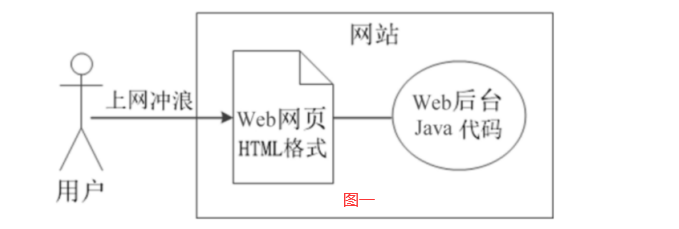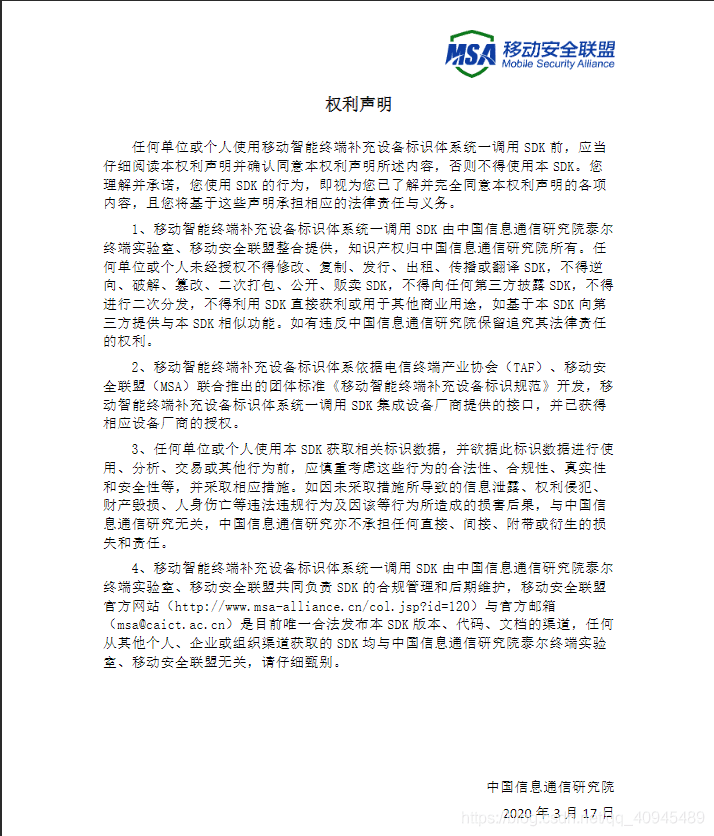本文实例为大家分享了android实现文件读写功能的具体代码,供大家参考,具体内容如下
读取:public static String _getJsonStri
本文实例为大家分享了android实现文件读写功能的具体代码,供大家参考,具体内容如下
读取:
public static String _getJsonString(String fileName)
throws IOException {
if ((fileName == null) || fileName.isEmpty()) {
return "";
}
String retString = "";
FileInputStream fis = null;
String state = Environment.getExternalStorageState();
if (state.equals(Environment.MEDIA_MOUNTED)) {
File file = new File(Environment.getExternalStorageDirectory()
+ "/" + fileName + ".json");
if (file.exists()) {
fis = new FileInputStream(file);
byte[] buffer = new byte[fis.available()];
fis.read(buffer);
fis.close();
retString = new String(buffer);
} else {
}
}
return retString;
}
写:
public static void saveSettingFile(String fileName, String content) {
FileOutputStream fos = null;
String state = Environment.getExternalStorageState();
if (state.equals(Environment.MEDIA_MOUNTED)) {
File file = new File(Environment.getExternalStorageDirectory()
+ "/" + fileName + ".json");
try {
fos = new FileOutputStream(file);
byte[] buffer = content.getBytes();
fos.write(buffer);
fos.close();
} catch (FileNotFoundException e) {
e.printStackTrace();
} catch (IOException e) {
e.printStackTrace();
}
}
}
Gson 读写:
public static void saveServerInfo(String fileName, String content) {
FileOutputStream fos = null;
String state = Environment.getExternalStorageState();
if (state.equals(Environment.MEDIA_MOUNTED)) {
File file = new File(Environment.getExternalStorageDirectory()
+ "/" + fileName + ".json");
try {
fos = new FileOutputStream(file);
byte[] buffer = content.getBytes();
fos.write(buffer);
fos.close();
} catch (FileNotFoundException e) {
e.printStackTrace();
} catch (IOException e) {
e.printStackTrace();
}
}
}
public static ServerInfo getServerInfo(String fileName)
throws IOException {
ServerInfo serverInfo = new ServerInfo();
if ((fileName == null) || fileName.isEmpty()) {
serverInfo = null;
return serverInfo;
}
FileInputStream fis = null;
String state = Environment.getExternalStorageState();
if (state.equals(Environment.MEDIA_MOUNTED)) {
File file = new File(Environment.getExternalStorageDirectory()
+ "/" + fileName + ".json");
if (file.exists()) {
fis = new FileInputStream(file);
byte[] buffer = new byte[fis.available()];
fis.read(buffer);
fis.close();
Gson gson = new Gson();
serverInfo = gson.fromJson(new String(buffer),
ServerInfo.class);
} else {
serverInfo = null;
}
}
return serverInfo;
}
调用:
public void onSetIPAndPort(View view) {
ServerInfo serverInfo = new ServerInfo();
try {
serverInfo = JsonFileWriteAndRead.getServerInfo("videochat");
} catch (IOException e) {
e.printStackTrace();
}
//写入ip和端口
String ip = ipSet.getText().toString();
String port = portSet.getText().toString();
serverInfo.setIpString(ip);
serverInfo.setPortString(port);
Gson gson = new Gson();
if (ip.isEmpty() || port.isEmpty()) {
Toast.makeText(this, "地址或端口为空", Toast.LENGTH_SHORT).show();
} else {
JsonFileWriteAndRead.saveServerInfo("videochat", gson.toJson(serverInfo));
Toast.makeText(this, "地址和端口已经写入文件", Toast.LENGTH_SHORT).show();
}
}
以上就是本文的全部内容,希望对大家的学习有所帮助,也希望大家多多支持好代码网。





